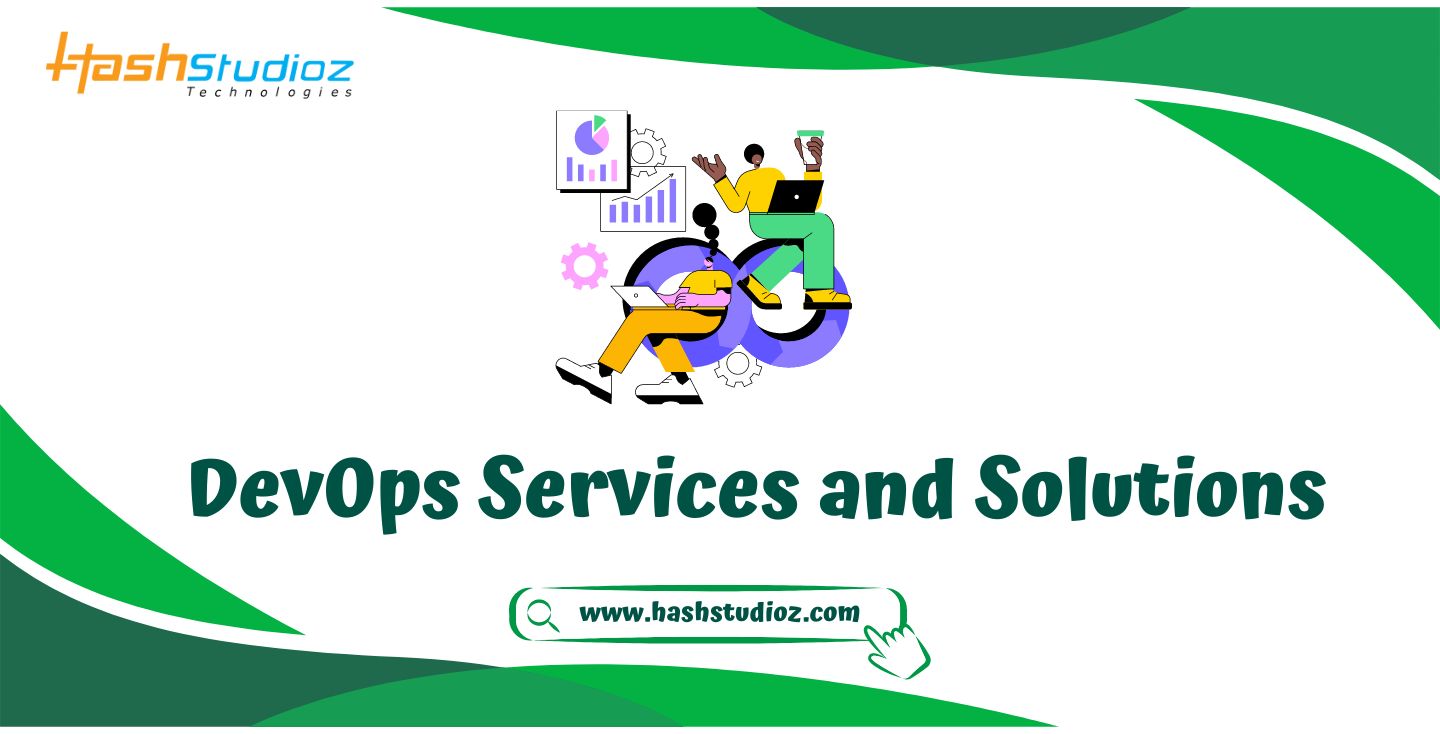DevOps has become an essential paradigm for improving collaboration, automating procedures, and speeding product delivery in today’s dynamic and fast-paced technology environment. But putting DevOps concepts into practice within a company takes knowledge, preparation, and experience. Many businesses rely on DevOps expert services to help them successfully navigate this challenging path.
This extensive guide attempts to give you a clear road map for choosing the best DevOps professional services suited to the requirements of your company. We’ll cover all the bases, from comprehending the principles of DevOps to assessing service providers, to enable you to make wise judgments.
Understanding DevOps:
What is DevOps?
DevOps is a set of practices that combines software development (Dev) and IT operations (Ops) to shorten the systems development life cycle and provide continuous delivery with high software quality. It aims to automate and integrate the processes between software development and IT teams, enabling them to build, test, and release software faster and more reliably.
Key Principles of DevOps:
- Collaboration: Breaking down silos between development and operations teams to foster collaboration and shared responsibility.
- Automation: Automating repetitive tasks to streamline processes and reduce manual errors.
- Continuous Integration (CI) and Continuous Deployment (CD): Implementing CI/CD pipelines to enable rapid and automated software delivery.
- Monitoring and Feedback: Monitoring application performance and gathering feedback to drive continuous improvement.
- Culture of Experimentation and Learning: Encouraging a culture of experimentation, learning from failures, and embracing change.
Benefits of DevOps Adoption:
- Faster Time to Market: DevOps practices enable organizations to release software updates more frequently, reducing time to market and gaining a competitive edge.
- Improved Quality and Stability: Automation and continuous testing lead to higher-quality software with fewer defects and faster resolution of issues.
- Enhanced Collaboration: DevOps encourages collaboration and communication between development, operations, and other stakeholders, fostering a culture of shared ownership.
- Increased Efficiency and Cost Savings: Automation reduces manual effort and operational costs, allowing organizations to allocate resources more efficiently.
Challenges in DevOps Implementation:
Cultural Shift:
One of the biggest challenges in DevOps adoption is overcoming cultural resistance and organizational silos. DevOps requires a cultural shift towards collaboration, shared responsibility, and a focus on delivering value to customers.
Toolchain Complexity:
The DevOps toolchain comprises a wide range of tools for automation, monitoring, and deployment, which can be complex to integrate and manage. Choosing the right tools and ensuring interoperability is crucial for a successful DevOps implementation.
Integration Issues:
Integrating legacy systems and existing processes with DevOps practices can be challenging. Organizations may face compatibility issues, data migration challenges, and resistance from stakeholders accustomed to traditional methods.
Role of DevOps Professional Services:
Why Choose DevOps Professional Services?
DevOps professional services provide expertise, guidance, and support to organizations embarking on their DevOps journey. They help navigate the complexities of DevOps implementation, accelerate time to value, and ensure successful outcomes.
Services Offered by DevOps Consultants:
DevOps consultants offer a range of services, including:
- DevOps assessment and readiness analysis
- Strategy and roadmap development
- Toolchain selection and implementation
- Process automation and optimization
- Cultural transformation and change management
- Training and skills development
- Ongoing support and monitoring
Criteria for Choosing DevOps Professional Services:
Expertise and Experience:
Look for DevOps service providers with a proven track record of successful implementations across a variety of industries. Assess their expertise in relevant technologies, methodologies, and best practices.
Cultural Fit and Collaboration:
Choose a service provider that aligns with your organization’s culture and values. Collaboration and communication are key to a successful DevOps transformation, so ensure compatibility with your team dynamics.
Customized Solutions:
Seek DevOps consultants who can tailor their approach to meet your organization’s specific needs and challenges. Avoid one-size-fits-all solutions and prioritize providers who take the time to understand your unique requirements.
Scalability and Flexibility:
Consider the scalability and flexibility of the services offered. Your DevOps needs may evolve over time, so choose a provider capable of adapting and scaling their solutions to accommodate future growth and changes.
Continuous Support and Monitoring:
DevOps is an ongoing journey, not a one-time project. Choose a service provider that offers continuous support, monitoring, and optimization to ensure long-term success. Regular assessments and adjustments are essential for maintaining momentum and driving continuous improvement.
Evaluating DevOps Service Providers:
Assessing Experience and Track Record:
Review case studies, client testimonials, and references to gauge the experience and track record of potential service providers. Look for evidence of successful DevOps transformations and tangible results achieved.
Reviewing Case Studies and Client Testimonials:
Study case studies and client testimonials to understand how the service provider has helped organizations overcome challenges and achieve their DevOps goals. Pay attention to specific outcomes, such as improved deployment frequency, reduced lead times, and increased customer satisfaction.
Analyzing Methodologies and Tools:
Evaluate the methodologies and tools used by the service provider to ensure they align with your organization’s goals and preferences. Consider factors such as ease of use, scalability, integration capabilities, and compatibility with your existing technology stack.
Understanding Pricing Models:
Understand the pricing models and cost structures of potential service providers. Compare pricing options and consider factors such as upfront costs, ongoing fees, and value delivered. Beware of hidden costs and ensure transparency in pricing arrangements.
Questions to Ask Potential DevOps Service Providers:
What is your approach to DevOps implementation?
Ask about the service provider’s methodology and approach to DevOps implementation. Look for a structured and collaborative process that aligns with your organization’s goals and culture.
How do you assess our organization’s current DevOps maturity level?
Inquire about the service provider’s process for assessing your organization’s current DevOps maturity level. A thorough assessment is essential for identifying gaps, defining goals, and developing a tailored roadmap.
How do you handle cultural resistance within organizations?
Ask how the service provider addresses cultural resistance and fosters collaboration within organizations. Look for strategies for overcoming resistance, building trust, and promoting a culture of continuous improvement.
What ongoing support and maintenance services do you offer?
Inquire about the service provider’s offerings for ongoing support, maintenance, and optimization. Continuous support is crucial for sustaining momentum and driving long-term success in DevOps.
How do you ensure security and compliance in DevOps practices?
Discuss the service provider’s approach to security and compliance in DevOps practices. Look for measures such as security assessments, compliance audits, and best practices for integrating security into the development process.
Key Considerations for Successful DevOps Implementation:
Executive Sponsorship and Leadership Buy-In:
Secure executive sponsorship and leadership buy-in for your DevOps initiative. Leadership support is essential for overcoming organizational barriers, allocating resources, and driving cultural change.
Cross-Functional Collaboration:
Promote cross-functional collaboration and shared ownership across development, operations, quality assurance, and other teams. Break down silos and foster a culture of collaboration, communication, and shared responsibility.
Automation and Continuous Integration/Continuous Deployment (CI/CD):
Embrace automation and implement CI/CD pipelines to streamline software delivery and deployment processes. Automation reduces manual effort, accelerates release cycles, and improves overall efficiency and reliability.
Monitoring and Feedback Loops:
Implement robust monitoring and feedback mechanisms to track performance, gather insights, and drive continuous improvement. Monitor key metrics such as deployment frequency, lead time, and mean time to recovery (MTTR) to identify areas for optimization.
Learning Culture and Continuous Improvement:
Foster a culture of experimentation, learning, and continuous improvement. Encourage teams to embrace failure as an opportunity for growth, learn from mistakes, and iterate on processes to drive incremental improvements over time.
Realizing the Benefits of DevOps:
Improved Deployment Frequency and Time to Market:
DevOps practices enable organizations to release software updates more frequently, reducing time to market and gaining a competitive edge. By automating manual processes and streamlining workflows, organizations can accelerate the pace of innovation and respond quickly to changing market demands.
Enhanced Collaboration and Communication:
DevOps fosters collaboration and communication between development, operations, and other stakeholders, breaking down silos and promoting shared ownership. By aligning teams around common goals and objectives, organizations can improve efficiency, productivity, and overall effectiveness.
Increased Stability and Reliability:
Automation and continuous testing lead to higher-quality software with fewer defects and faster resolution of issues. By implementing robust monitoring and feedback mechanisms, organizations can identify and address issues proactively, minimizing downtime and improving system reliability.
Greater Efficiency and Cost Savings:
DevOps automation reduces manual effort and operational costs, allowing organizations to allocate resources more efficiently. By optimizing processes, streamlining workflows, and eliminating waste, organizations can achieve significant cost savings while delivering greater value to customers.
Successful DevOps Transformations:
Company A: Streamlining Deployment Processes
Company A, a leading software company, partnered with a DevOps consultancy to streamline its deployment processes and accelerate time to market. By implementing CI/CD pipelines and automation tools, the company reduced deployment lead times from weeks to minutes, enabling faster release cycles and greater agility.
Company B: Accelerating Time to Market
Company B, a financial services firm, leveraged DevOps practices to accelerate time to market for its digital products and services. By adopting agile methodologies, cross-functional collaboration, and CI/CD pipelines, the company reduced release cycles from months to days, gaining a competitive edge in the market.
Company C: Enhancing Cross-Functional Collaboration
Company C, a retail giant, transformed its software delivery process by fostering cross-functional collaboration and shared ownership. By breaking down silos between development, operations, and quality assurance teams, the company improved communication, efficiency, and overall effectiveness, resulting in faster delivery of high-quality software.
Conclusion: Empowering Your DevOps Journey
Recap of Key Points:
In summary, choosing the right DevOps professional services is essential for achieving success in your DevOps journey. By understanding the fundamentals of DevOps, evaluating service providers, and embracing key principles and best practices, organizations can accelerate their transformation and realize the full benefits of DevOps adoption.
Importance of Choosing the Right DevOps Professional Services:
DevOps is more than just a set of tools and technologies—it’s a cultural and organizational transformation that requires expertise, experience, and strategic guidance. By choosing the right DevOps professional services, organizations can overcome challenges, accelerate time to value, and achieve sustainable results.
Continuous Learning and Adaptation in DevOps:
DevOps is a journey, not a destination. Organizations must embrace a culture of continuous learning, experimentation, and adaptation to thrive in today’s fast-paced and ever-changing digital landscape. By staying agile, responsive, and focused on delivering value to customers, organizations can unlock new opportunities and drive innovation in DevOps and beyond.
In conclusion, selecting the right DevOps professional services is a critical step towards achieving success in your DevOps journey. By understanding the fundamentals, evaluating potential service providers, and embracing key principles and best practices, organizations can navigate the complexities of DevOps implementation with confidence and achieve tangible results.


